Chemistry
Sign up for our newsletter
We summarize the week's scientific breakthroughs every Thursday.
-
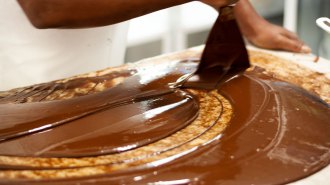 Chemistry
ChemistryA pinch of saturated fat could make tempering chocolate a breeze
Adding a small amount of fatty molecules to cocoa butter could simplify the labor-intensive tempering process to create melt-in-your-mouth chocolate.
By Nikk Ogasa -
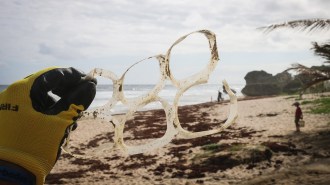 Chemistry
Chemistry50 years ago, scientists developed self-destructing plastic
In the 1970s, scientists developed plastic that could quickly break down when exposed to light. But that didn’t solve the world’s pollution problems.
By Aina Abell -
 Chemistry
ChemistryMany cosmetics contain hidden, potentially dangerous ‘forever chemicals’
Scientists found signs of long-lasting PFAS compounds in about half of tested makeup products, especially waterproof mascaras and lipsticks.
-
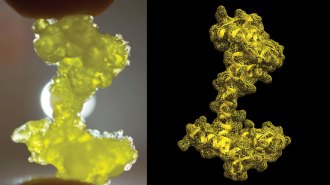 Chemistry
ChemistryA sweet father-son bond inspires tasty new molecule models
New edible models of proteins could spark students’ interest in the world of chemistry, especially students who are blind.
By Carmen Drahl -
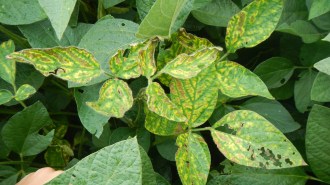 Agriculture
AgricultureNanoscale nutrients can protect plants from fungal diseases
Applied to the shoots, nutrients served in tiny metallic packages are absorbed more efficiently, strengthening plants’ defenses against fungal attack.
By Shi En Kim -
 Earth
EarthLightning may be an important source of air-cleaning chemicals
Airplane observations show that thunderstorms can directly generate vast quantities of atmosphere-cleansing chemicals called oxidants.
-
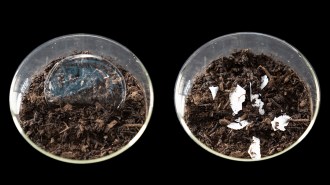 Chemistry
ChemistryA new technique could make some plastic trash compostable at home
Embedding enzymes inside biodegradable plastics makes them truly compostable, which could mitigate the plastic waste problem.
By Carmen Drahl -
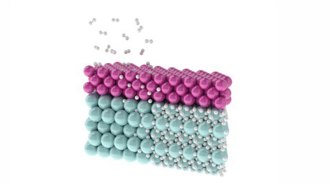 Physics
PhysicsCan room-temperature superconductors work without extreme pressure?
The next generation of materials that conduct electricity with no resistance could shrug off the need for high pressure and low temperatures.
-
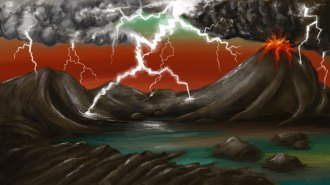 Earth
EarthPhosphorus for Earth’s earliest life may have been forged by lightning
Lightning strikes can supply one of life’s essential elements, long thought to be delivered by meteorites billions of years ago.
-
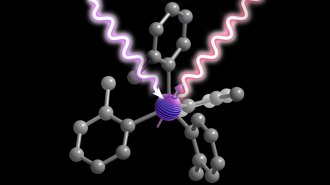 Quantum Physics
Quantum Physics‘Designer molecules’ could create tailor-made quantum devices
Scientists are making molecules suited to a variety of quantum tasks by building them up, atom by atom.
-
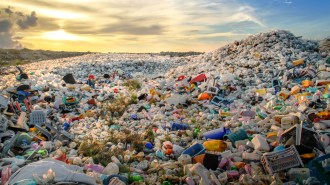 Chemistry
ChemistryChemists are reimagining recycling to keep plastics out of landfills
Recycling plastics is really hard, and usually creates low-quality materials that aren’t good for much. Chemists are trying to change that.
-
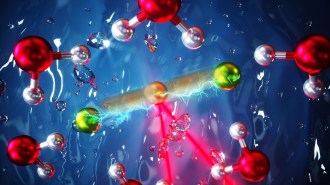 Chemistry
ChemistryThis weird chemical bond acts like a mash-up of hydrogen and covalent bonds
Chemistry students are taught that hydrogen bonds and covalent bonds are distinct, but a new study shows they exist on a continuum.